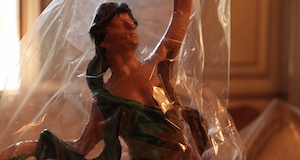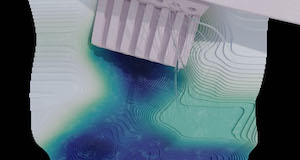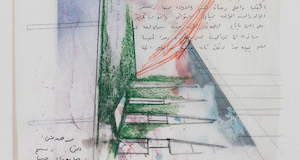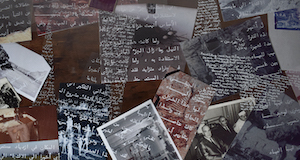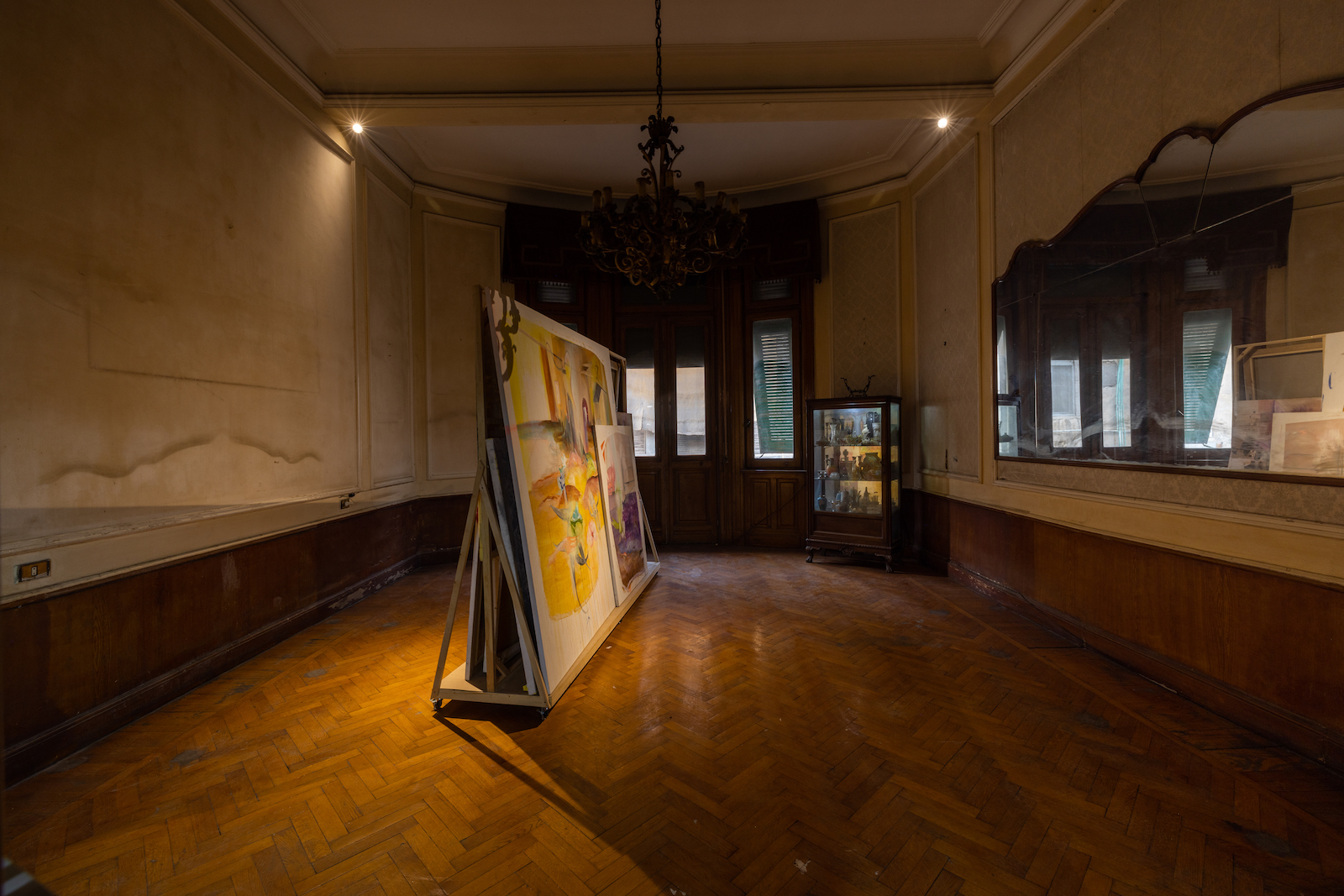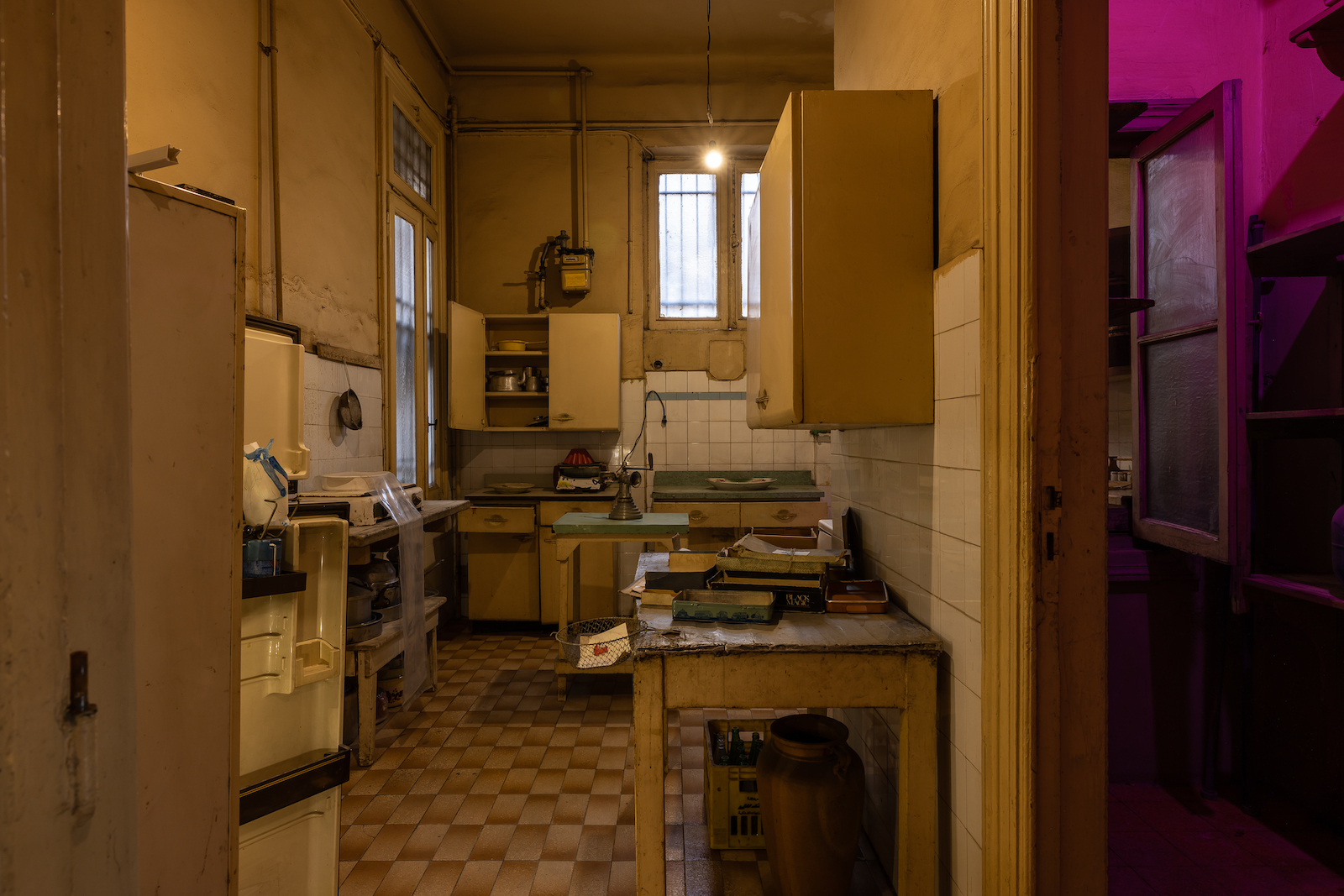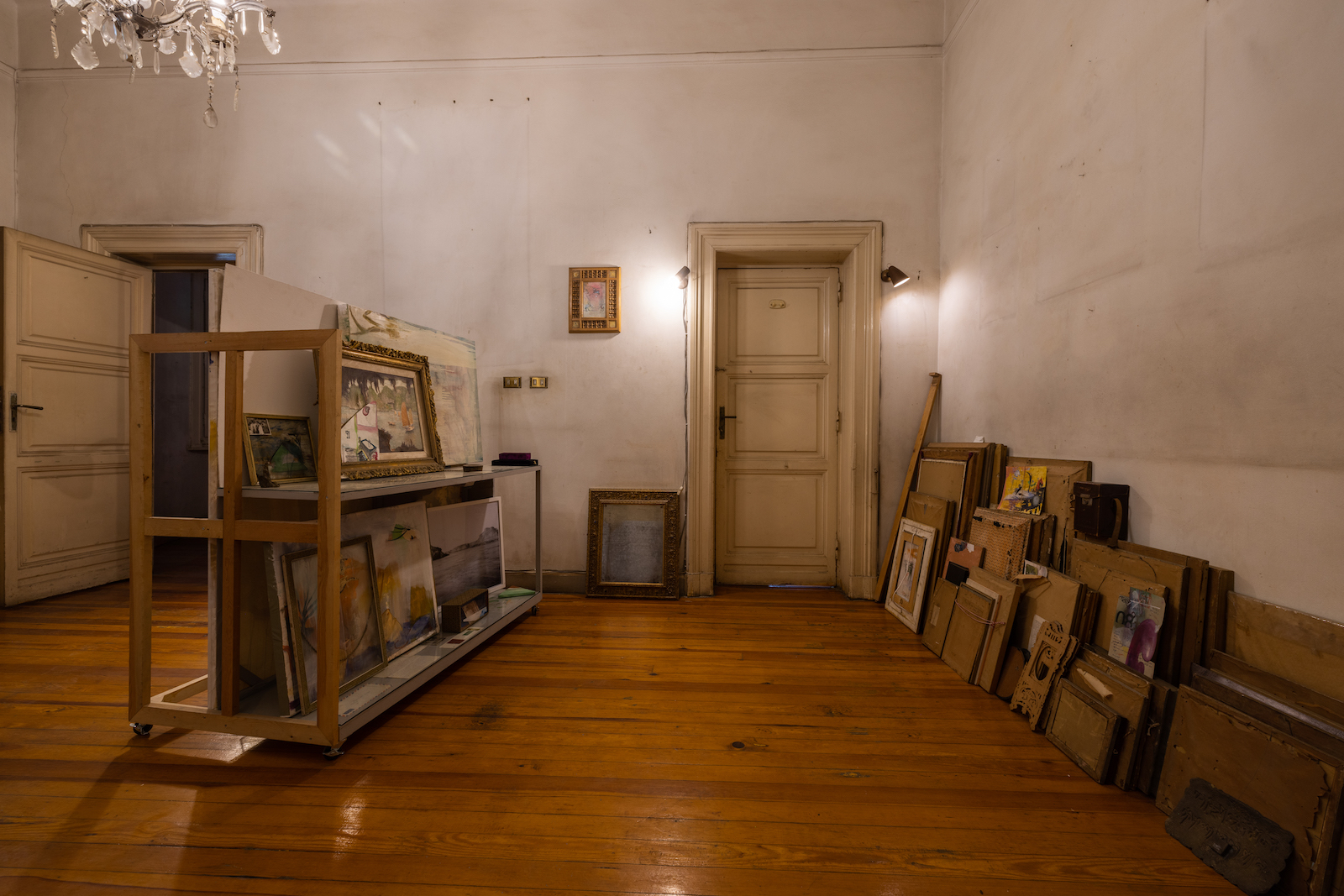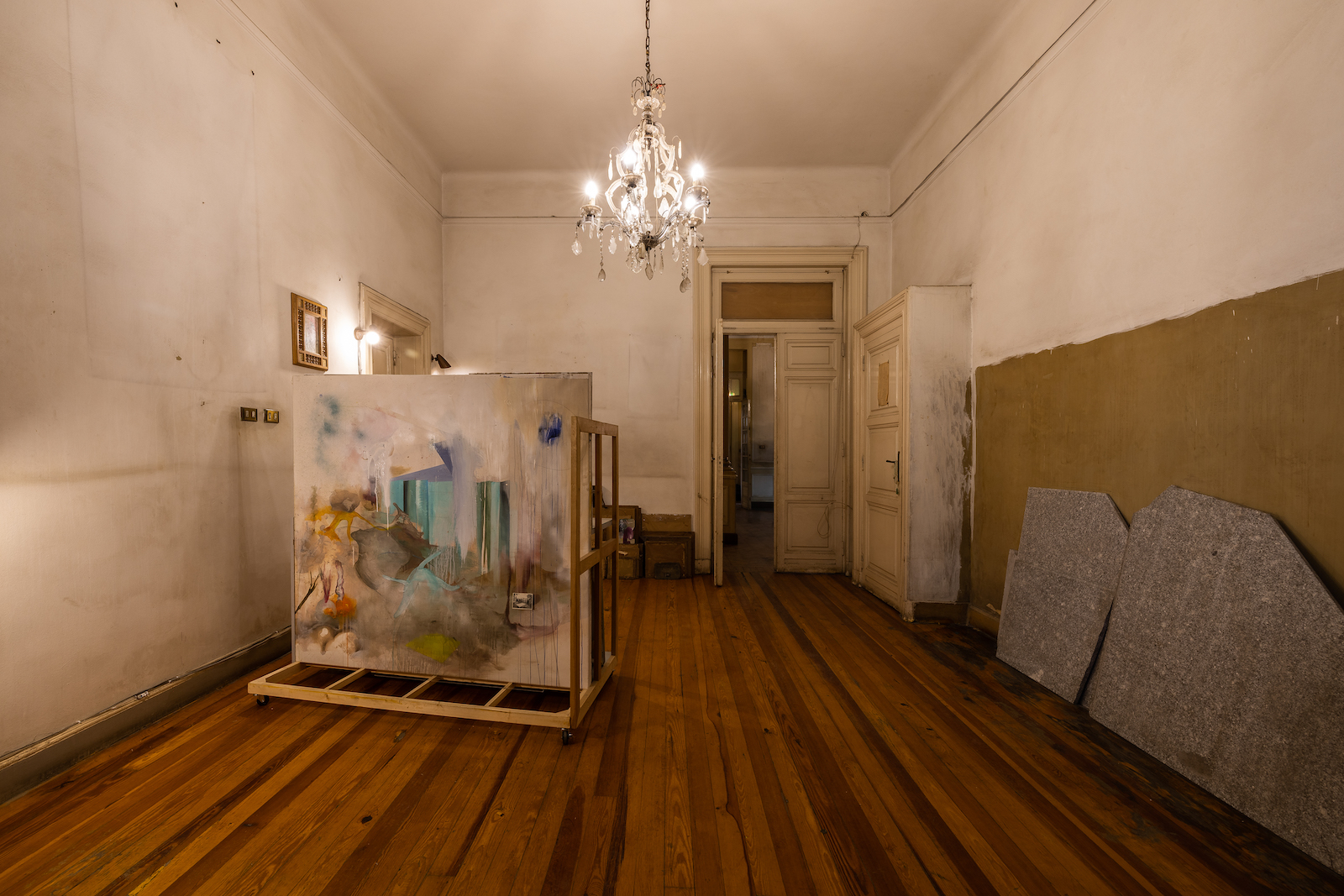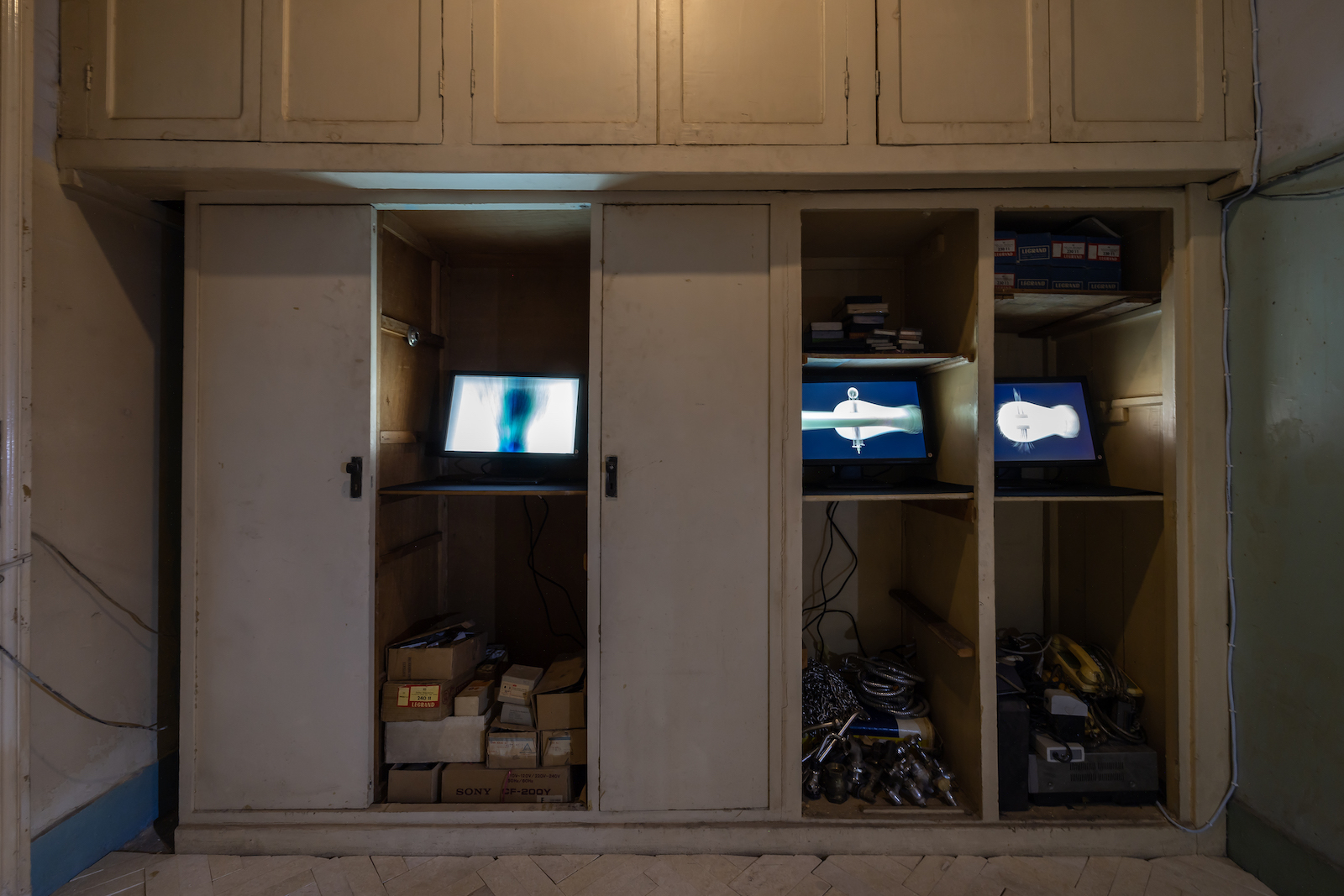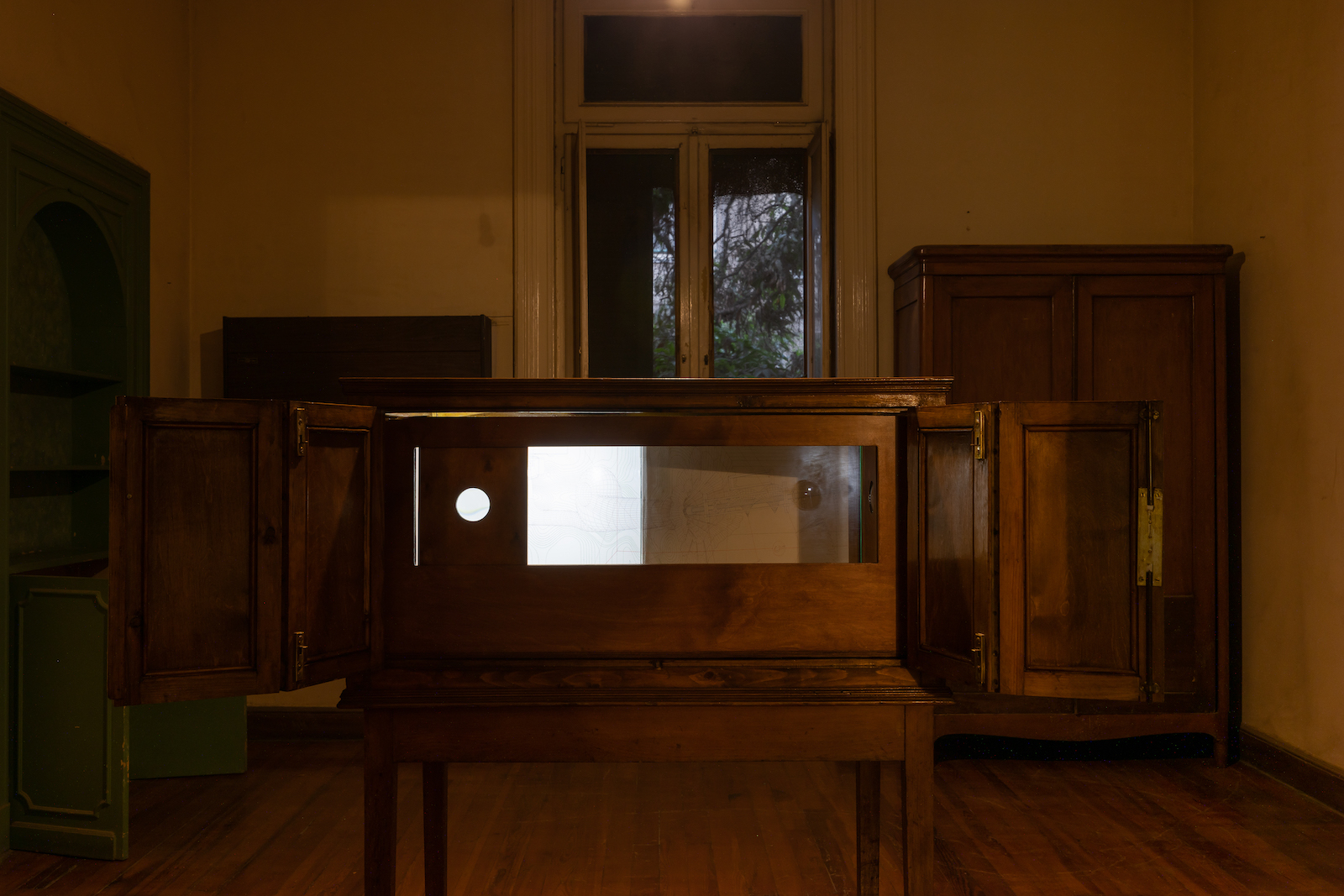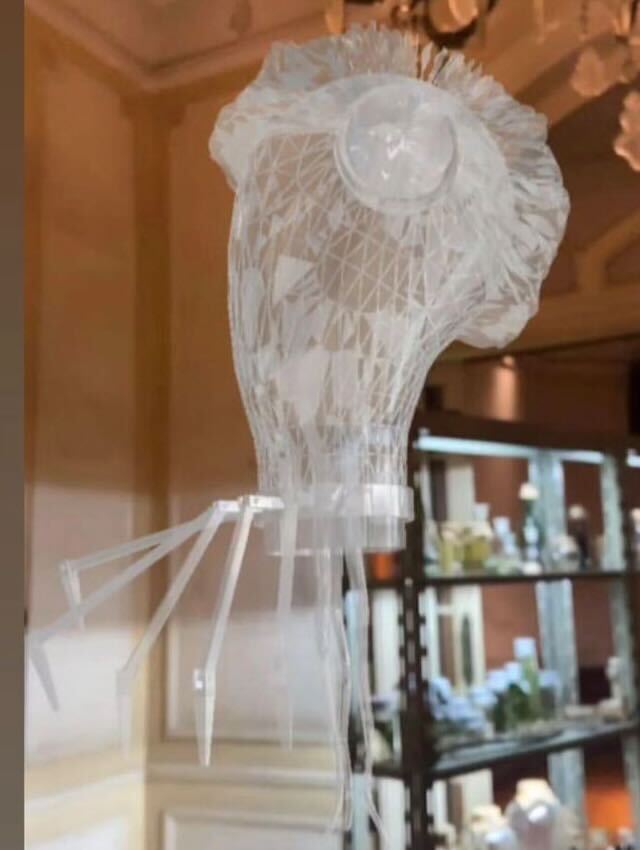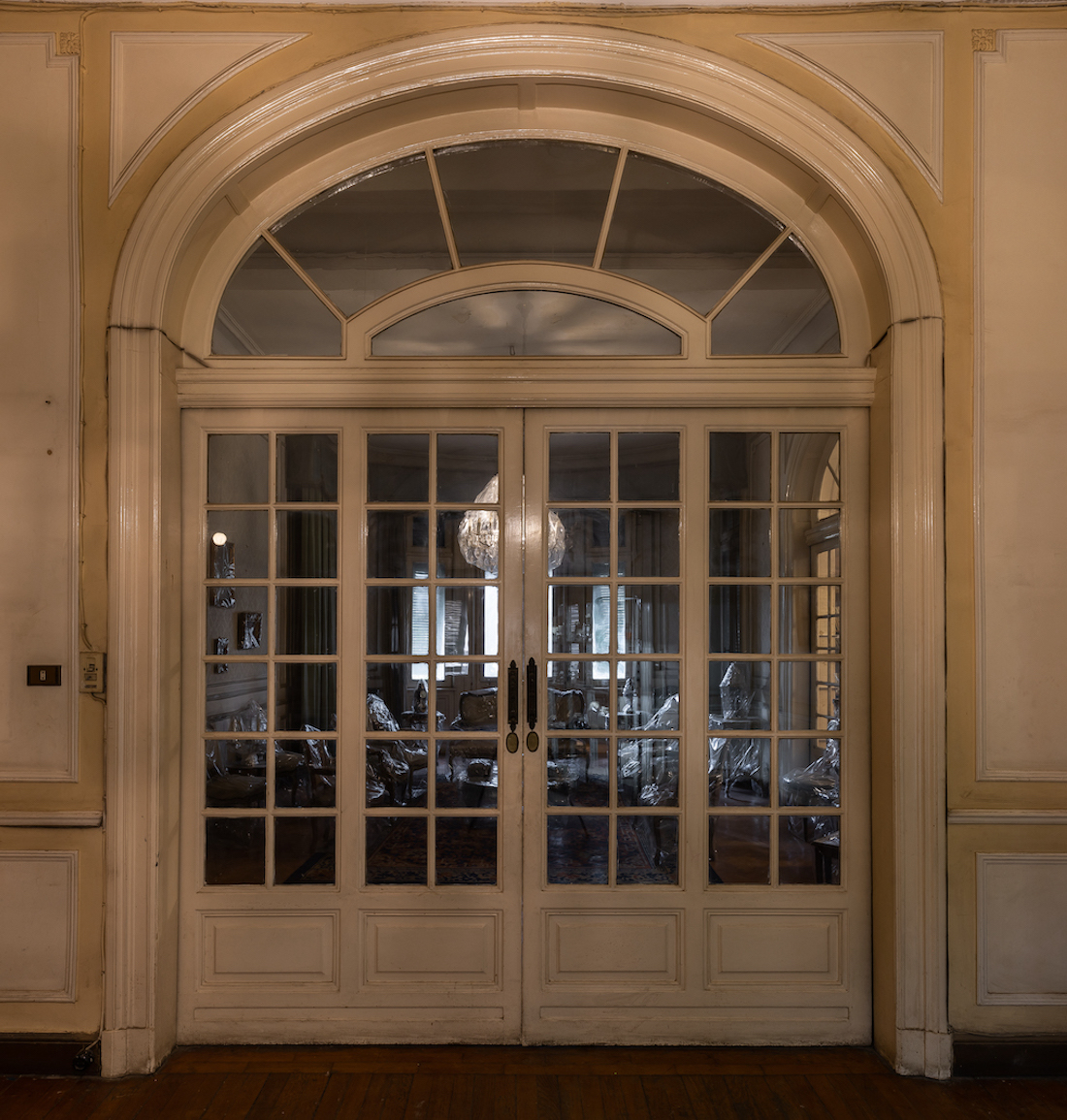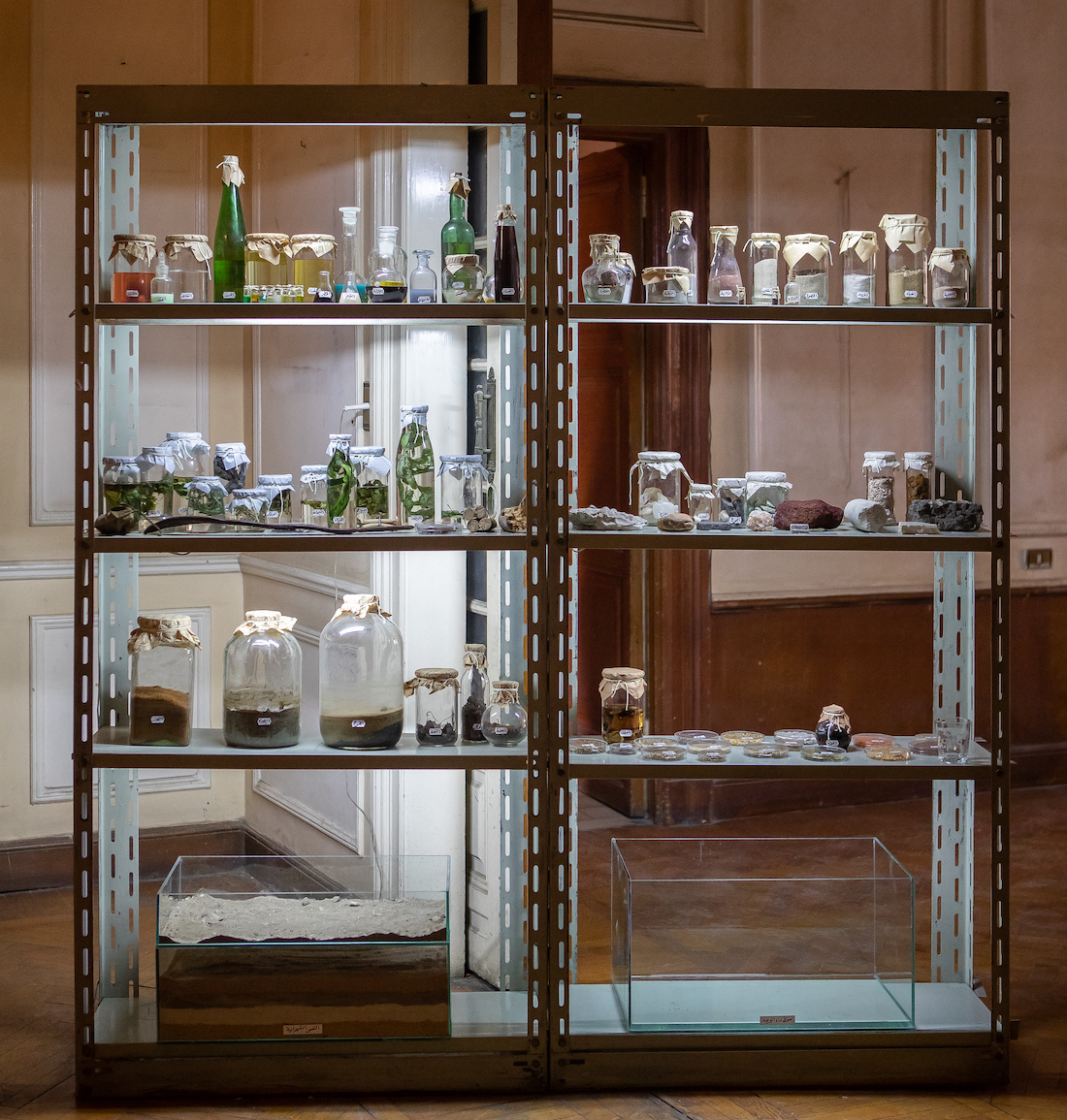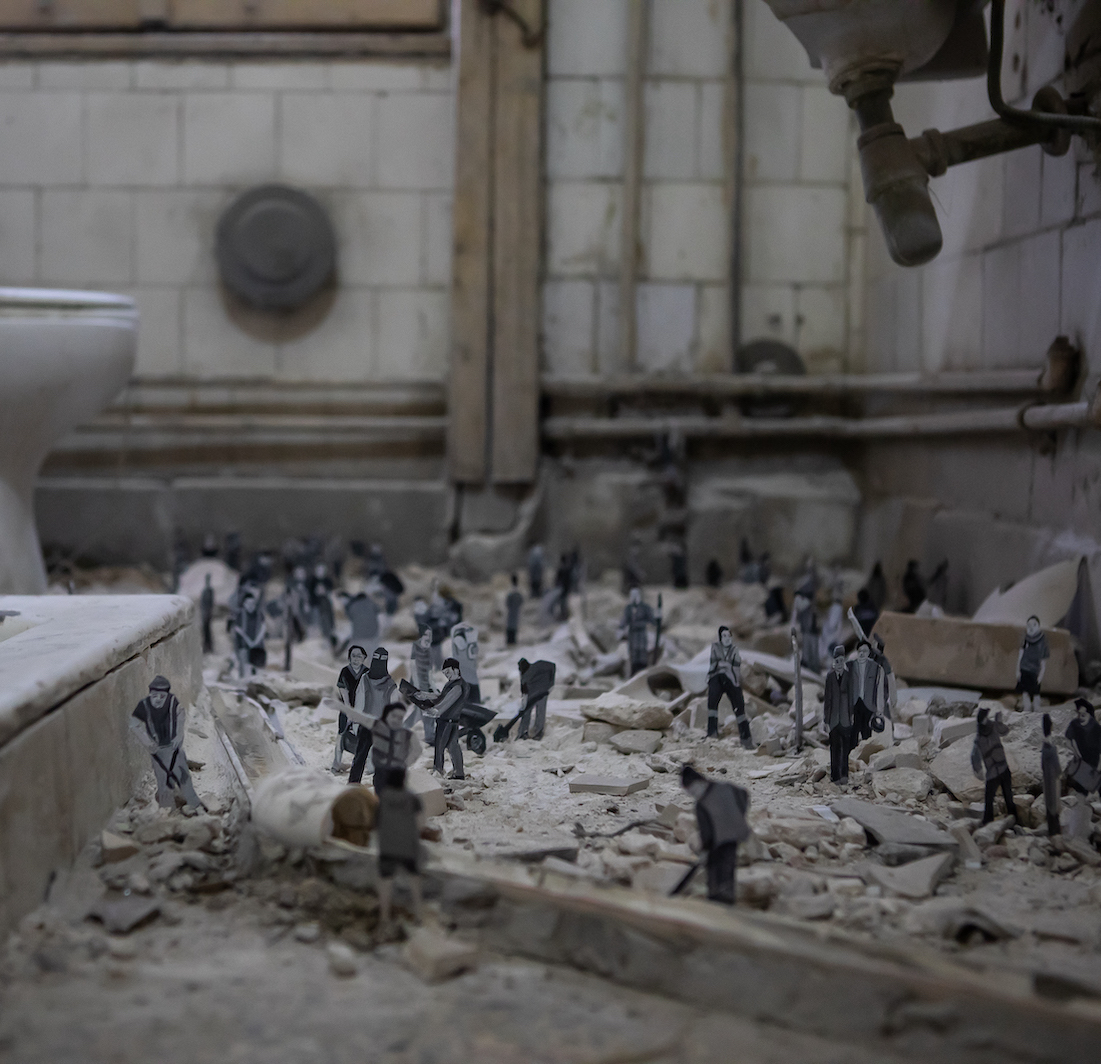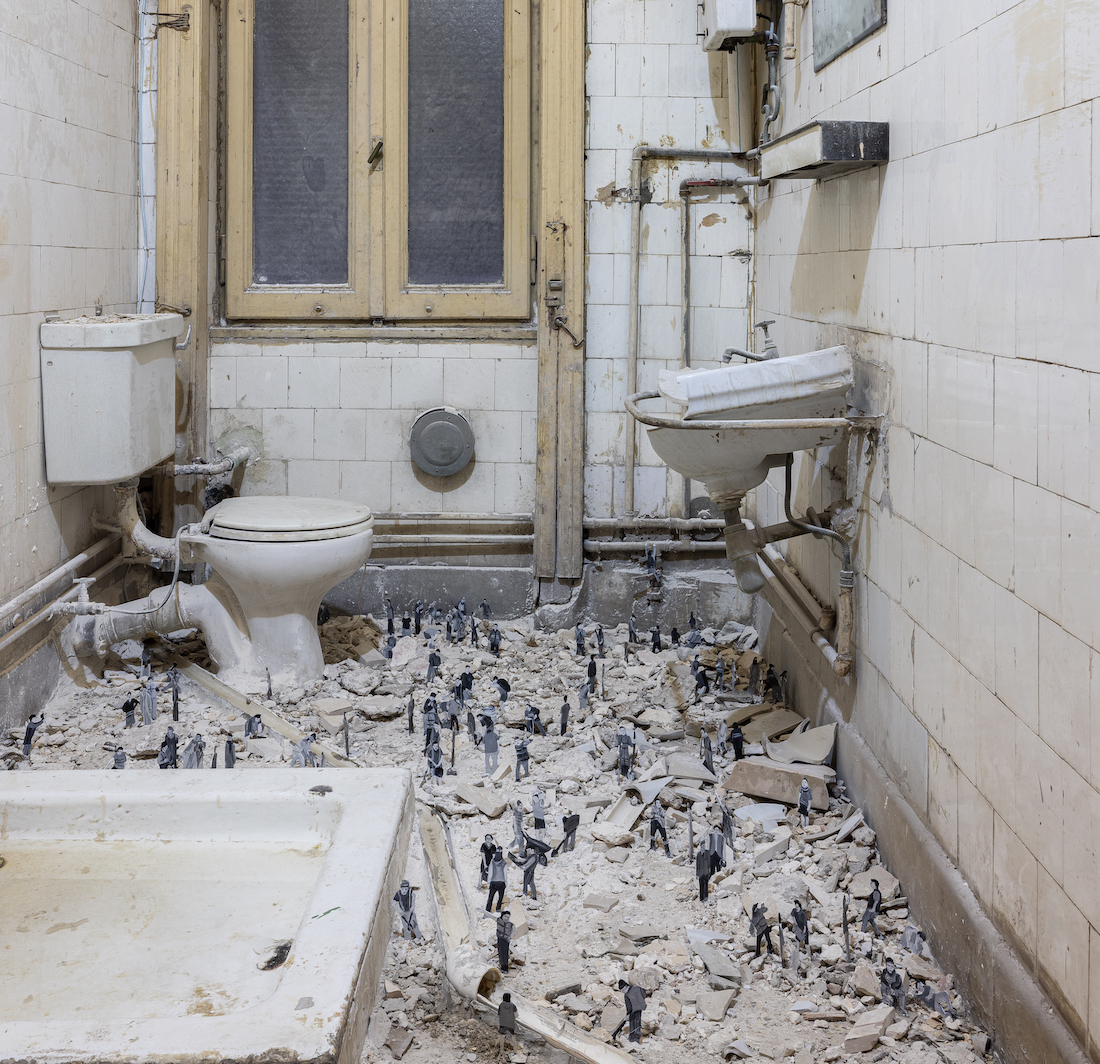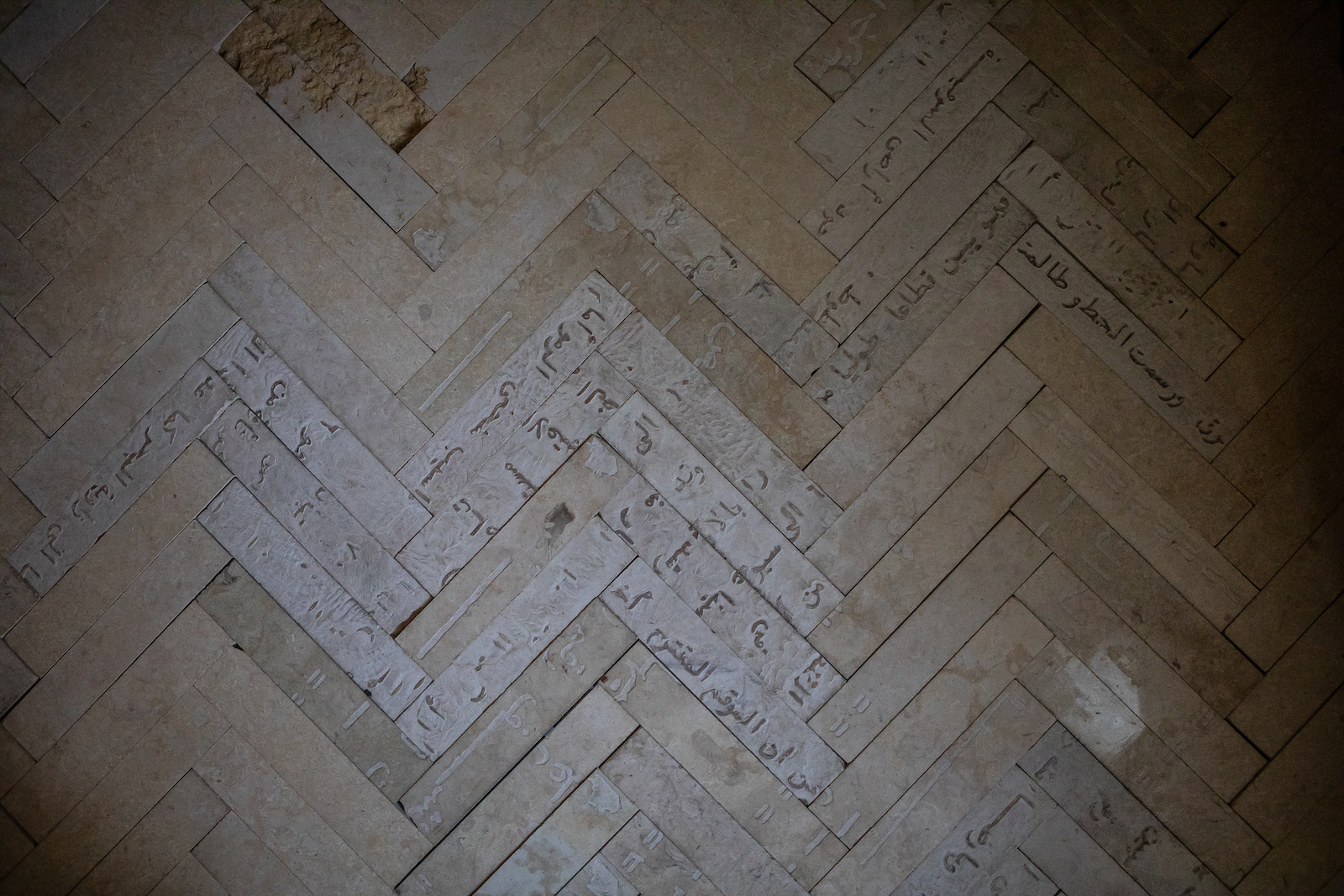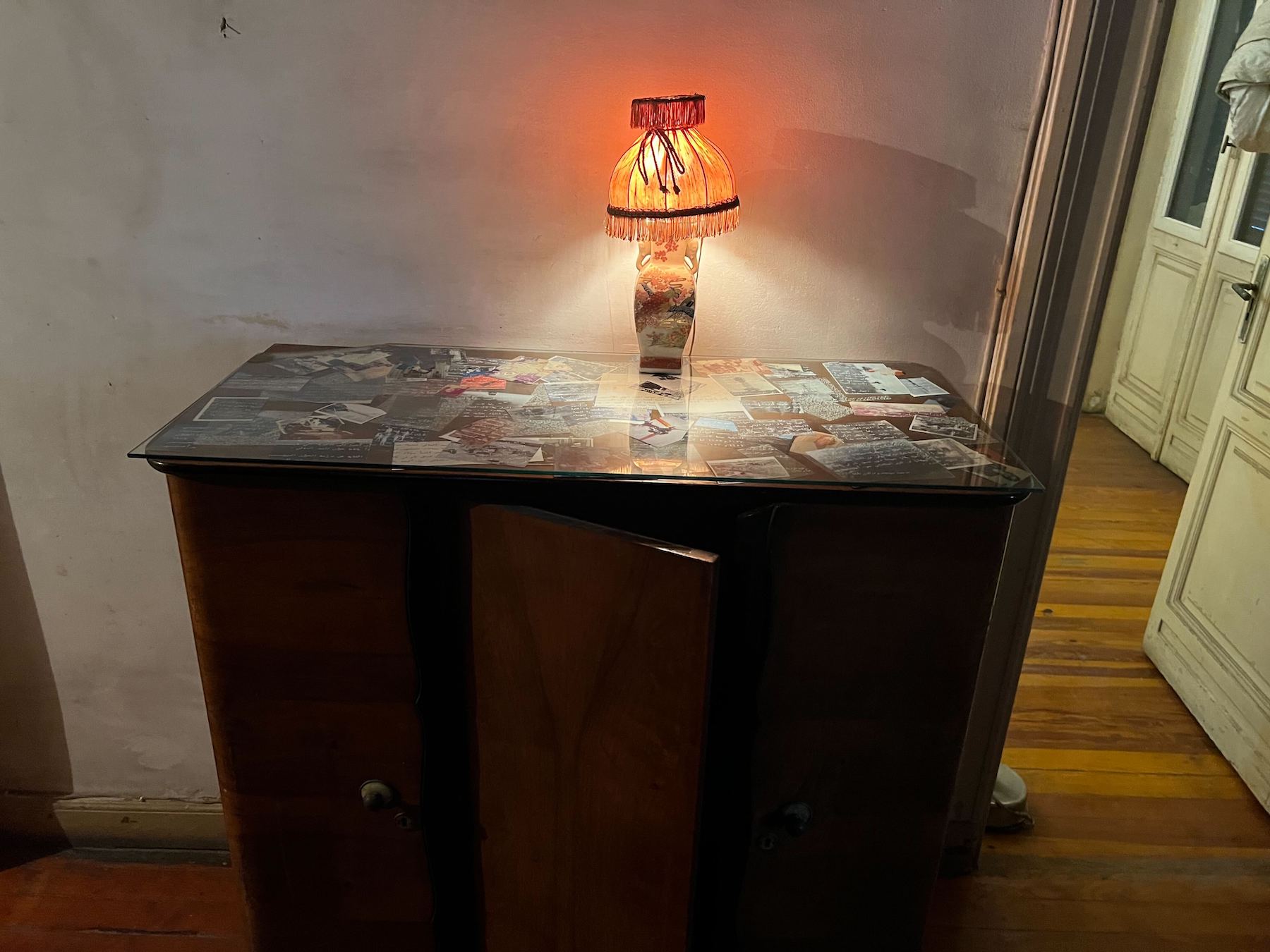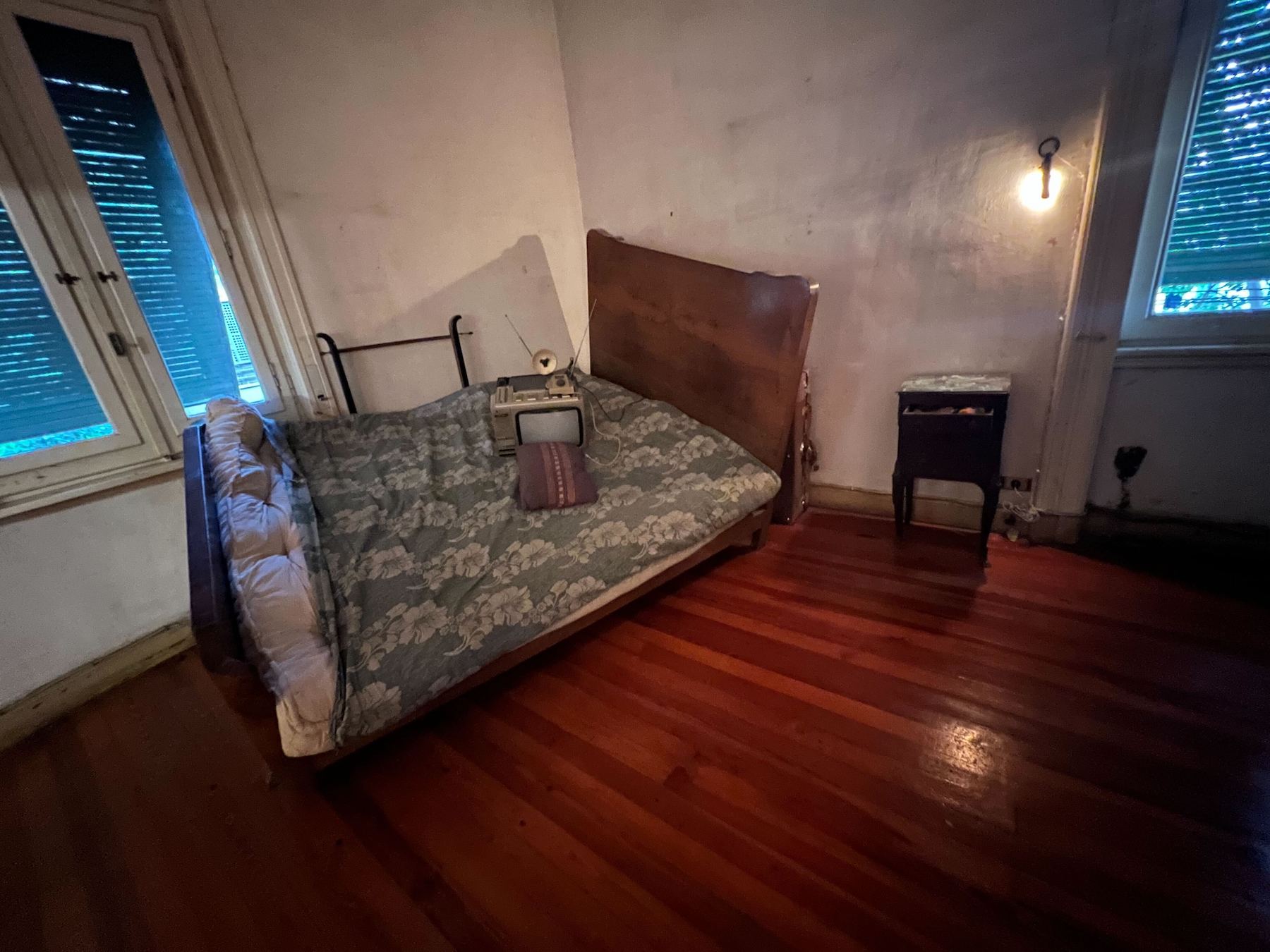Use your up, down, left, and right keys, or click within to navigate.
Nada Baraka - Mohamed Elmaghraby - Hany Rahsed - Malak Yacout - Ahmed Ali Kamal
Egypt's late minister of irrigation, Ahmed Ali Kamal, was not just preoccupied with dams, pipes, and soil. He was also a keen photographer and traveler concerned with ethics. He held a unique relationship to the Nile shaped by environmental questions. He was an engineer who gave himself the task of preservation.
In The Valley of Walls, artworks intervene with Ali Kamal's archive which spans most of the twentieth century. His letters, reports, and technical drawings form the basis of archival-based art presented by Nada Baraka, Mohamed ElMaghraby, Hany Rashed, and Malak Yacout. The four artists find themselves in his abandoned apartment asking: Can the artworks' intervention have an ecological quality of its own?
The apartment becomes the environment the artists now seek to preserve. Dusted cabinets play host to drawings, forgotten cutlery caress paintings. Through site-specific installations, each artist forms a dialogue with the components and practices of this rich archive. El Maghraby and Yacout were inspired by documents pertaining to water management and each of them plays with narrative to highlight forgotten elements. Baraka and Rashed turn to the practice of classifying to enliven domestic spaces through memories they may have held. Installation as a medium reflects how the artists collaborate with the apartment and its unique ecology. Their immersive artworks awaken and preserve all at once.
In The Valley of Walls, artworks intervene with Ali Kamal's archive which spans most of the twentieth century. His letters, reports, and technical drawings form the basis of archival-based art presented by Nada Baraka, Mohamed ElMaghraby, Hany Rashed, and Malak Yacout. The four artists find themselves in his abandoned apartment asking: Can the artworks' intervention have an ecological quality of its own?
The apartment becomes the environment the artists now seek to preserve. Dusted cabinets play host to drawings, forgotten cutlery caress paintings. Through site-specific installations, each artist forms a dialogue with the components and practices of this rich archive. El Maghraby and Yacout were inspired by documents pertaining to water management and each of them plays with narrative to highlight forgotten elements. Baraka and Rashed turn to the practice of classifying to enliven domestic spaces through memories they may have held. Installation as a medium reflects how the artists collaborate with the apartment and its unique ecology. Their immersive artworks awaken and preserve all at once.
Farida Youssef is a writer and curator based in Cairo. She holds an MA in European Philosophy with distinction from UCL. She is interested in the value of spatial theory for artistic inquiries. As a Merut fellow at the British Museum she researched the Egyptian collection through the lens of contemporary philosophy.


